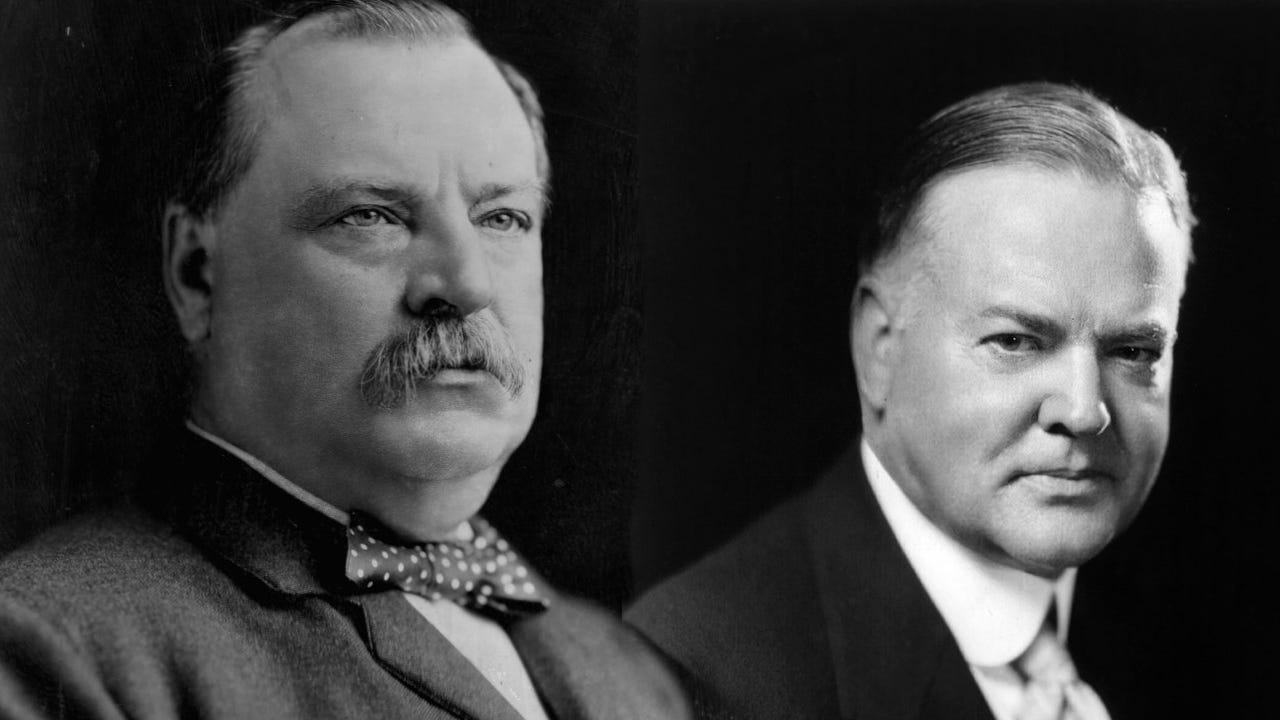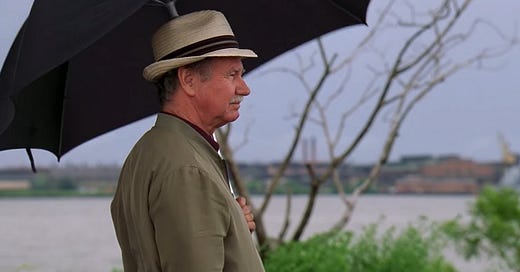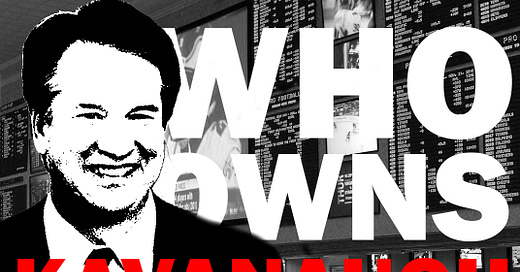
2024: The Year of the Two Incumbents
Neither Kamala Harris nor Donald Trump is the sitting president, but both enjoy certain perquisites of incumbency. What can U.S. history teach us about what might happen in November?
By stepping down and endorsing VP Harris as the Democratic nominee, President Biden ceded the incumbency—technically. But the 2024 election is, for all intents and purposes, a contest between two incumbents.
With Biden’s graceful, honorable exit from the race, Harris became the quasi-incumbent. She gets to run on the sterling four-year record of the Biden-Harris Administration, without assuming Joe’s deficiencies (old age, worsening stutter, inability to generate excitement, son’s laptop). She is young and vibrant and new, but she’s also more of a known commodity than Barack Obama in 2008, Bill Clinton in 1992, or JFK in 1960—and a lot more experienced than those guys were. And because the Vice President has no actual Constitutional responsibility beyond taking the top job if needed, Kamala is free to campaign 24/7. It is the best of both worlds.
Donald Trump is a quasi-incumbent, too. He doesn’t get to fly around on Air Force One, but he does enjoy all the other perquisites of incumbency. He’s had the job before, so we’re familiar with him (alas). He won the nomination easily, without any sort of internecine primary. He commands the press. He even dictates policy—domestic, as when he ordered Republicans in Congress to kill the border bill; and foreign, as when he took meetings with Bibi Netanyahu and Viktor Orbán.
Even without considering the impossibly high stakes, the Russian interference, and the legacy media being in the bag for Donald, we’ve never had an election quite like this one. Generally, presidents leave the Oval Office because of term limits, lack of popularity, scandal, infirmity, or death. Only thrice since the invention of the incandescent lightbulb has a former president left the White House, sat out for a term, and run again four years later, before Trump did it this year: Grover Cleveland in 1892, who prevailed; Theodore Roosevelt in 1912, who lost; and Herbert Hoover in 1940, who failed to win his party’s nomination. Hoover was 64. The other two were in their mid-fifties—a quarter century younger than dotardly Donald is today.
As for a sitting one-term president stepping down willingly and offering a full-throated and sincere endorsement of his VP? Yeah, that’s never happened before. James Polk did not seek re-election after a successful four years in office, as he’d promised, but he did not then campaign for George M. Dallas in 1848. LBJ’s 1968 exit led to a contested convention and the Democrats getting trounced in November. Oh, and while women have run for president before, none have been a sitting VP on the top of the ticket of a major political party. So much of this is unprecedented!
What does history suggest will happen on Election Day? These three campaigns are the most relevant to the current election cycle:
1892 Election
This contest pitted Democrat Grover Cleveland and his Santa Claus paunch against Republican Benjamin Harrison and his Santa Claus beard. Cleveland had captured the presidency in 1884, served ably for four years, and won the popular vote in 1888, only to lose in the Electoral College—a pernicious outcome seemingly endemic to the Democratic Party.
Cleveland ranks a respectable, middle-of-the-pack 25th in the most recent C-SPAN presidential survey. Harrison is 32nd—one spot below the disgraced Richard Nixon, but well ahead of Trump.
A reformer who began the party’s leftward shift, Cleveland was, unlike Trump, well-liked enough to win the popular vote three times in a row. His daughter Ruth, born a year before the ‘92 election, is the namesake of the Baby Ruth candy bar—not Babe Ruth, as is commonly believed—and the press adored her; Trump, meanwhile, has Barron.
1912 Election
Restless, ornery, and regretful of his decision not to seek another term, Teddy Roosevelt ran as a third party candidate for president in 1912. It was during this failed run that someone shot him while he was about to deliver an address. “It will take more than that to kill this Bull Moose!” he said, before finishing his speech as blood seeped through his shirt. (Can you imagine how social media would react if this happened today?) MAGA grifters have tried to equate the TR shooting with the assassination attempt on Donald Trump. It did not work.
Teddy Roosevelt is one of the five best presidents we’ve had. He’s on Mount Rushmore. He was a larger than life figure, and he displayed the “alpha male” qualities the Jordan Petersons and Andrew Tates of the world so vociferously venerate. Even so, he could only muster a paltry 27 percent of the vote in 1912, winning 88 of 531 electoral votes. Do we really expect DJT to outperform TR?
1932 Election
This is, I think, the closest analog to 2024: Herbert Hoover, the reviled, inept incumbent, taking on FDR, bringer of the New Deal.
Hoover assumed office at the tail-end of the Roaring Twenties, an age of economic boom. He’d been on the job just seven months when Black Thursday happened, the stock market crashed, and the entire global economy cratered. His laissez-faire economic policies and staunch non-interventionism were the worst possible combination to combat what became the Great Depression. Voters despised him, blaming him for their economic plight.
In ‘32, he suffered an ass-kicking for the ages:
In 1928, Hoover got 21.4 million out of a possible 36.8 million votes.
In 1932, Hoover got 15.7 million out of a possible 39.7 million votes.
Hoover fell from 58.4 to 39.6 percent of the vote, a staggering 18.6-point drop.
Trump and Hoover have a lot in common. Like Hoover, Donald is a Republican. Like Hoover, he is perceived as friendly to business. Like Hoover, he presided over a national crisis—the pandemic, in Trump’s case—which his botched, ideologically-driven response only exacerbated. And like Hoover, people fucking hated him. As president, Trump’s approval rating peaked at 49 percent, was usually in the low 40s or high 30s, and sank to 34 percent his last month in office.
That didn’t hurt him in 2020, for reasons I’ve never quite understood. Donald managed somehow to increase his vote total:
In 2016, Trump got 62.9 million out of a possible 133.7 million votes.
In 2020, Trump got 74.2 million out of a possible 158.4 million votes.
Trump jumped from 46.0 to 46.9 percent of the vote, a 0.8-point increase.
In that second election, the number of total votes went up, by about 21.7 million. The number of votes for Trump also went up, by over 11 million. Nevertheless, he lost by a whopping 8 million votes.
It is my belief that, owing to the pandemic, the shitty media coverage, and the brazen criminality being normalized, the American people have been slow to realize the existential danger and abject unfitness of Trump. But the collective epiphany seems to be activating this time around. Twenty twenty four will likely play out like 1932, with Donald hemorrhaging votes so badly that he adversely impacts the down-ballot candidates. Trump is a ball and chain—or, if you will, a sex offender’s ankle monitor—on the leg of the Republican Party.
In 2016, Trump lost the popular vote but won in the Electoral College. In 2020, he lost the popular vote and lost closely in the Electoral College. This is the year he gets crushed in both. Twenty twenty four will be an historic victory for Kamala Harris and the final repudiation of Donald John Trump.
The GOP may want a reprise of 1892, with a candidate winning non-consecutive elections. But we’re not going back.
Photo credit: Grover Cleveland and Herbert Hoover.
















My fav from today's Prevail: "Trump is a ball and chain—or, if you will, a sex offender’s ankle monitor—on the leg of the Republican Party."
Brilliant!!!
Good research & smart theme for an essay kicking off the final phase of 2024. Surprised, though, not to see what I consider the best-case analogy to 2024, namely 1960. Nixon had the advantage of 8 years as VP of popular Eisenhower, but Kennedy had the youthful, joyous vibe & fresher face. This caused the younger (20s, 30s, 40s) voters to see McCarthyist Nixon as the downbeat, older, familiar, less attractive actor even though JFK was as much a McCarthy fellow-traveler. This year, Harris has the 1960 Nixon advantage of incumbency behind a steady old POTUS but also the freshness & positive energy of JFK.
Trump is doing what he can to simulate incumbency but he has too much baggage. He can't pivot from being the 2015-2024 hog of the spotlights, the age-afflicted outsider attacking the Deep State or from his sponsorship of the hapless, Nixon-like villain Vance. His energy has always been & still is relentlessly negative. Americans who aren't effectively sick of Trump are in any event truly exhausted by Trump's endless revanchist personality. Except for his cult & the million-dollar annual income minority, the US is well & truly tired of him.
Advantages, Harris. Now all (!) we have to do is overcome the cheating, local rigging & covert foreign interference on Trump's side. This is the non-political wild card again.